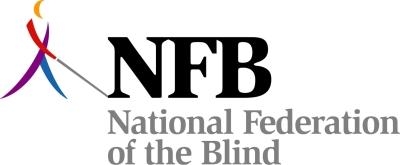Fri, Jan 24, 2014
Regulations On Access To Kiosks Violate Federal Law, Organization Says
The National Federation of the Blind (NFB) has filed suit in the United States District Court for the District of Columbia against the United States Department of Transportation (DOT). The suit challenges regulations, issued by the DOT under the Air Carrier Access Act (ACAA), which purport to require that airline check-in kiosks be made accessible to airline passengers who are blind.

The regulations, which took effect on December 12, 2013, require only 25 percent of airport check-in kiosks to be accessible to blind passengers by ten years from that date. The NFB maintains that this requirement fails to implement the ACAA as Congress intended. The ACAA prohibits discrimination against passengers with disabilities by airlines. The legislative record shows that when it passed the law, Congress intended that the only permissible restrictions on access to air travel would be directly related to the safety of all passengers. Among other things, by allowing continued discrimination against the blind by the airlines on a matter not related to safety, the agency violated the law, the suit claims.
Kiosks can be made accessible to the blind in the same way that ATMs and other customer service devices (such as ticket-purchasing kiosks used by Amtrak and other transit agencies) are already made accessible: by affixing Braille labels, installing headphone jacks, and adding speech software that provides audio prompts to the user. The NFB's president, Dr. Marc Maurer, and director of advocacy and policy, Anil Lewis, both of whom are blind and fly frequently on organization business, are also named as plaintiffs. "The technology to make airline check-in kiosks accessible to blind people is readily available; similar technology is already deployed on ATMs, other kiosks, and similar devices nationwide, and has been for many years," said Dr. Maurer. "Yet the Department of Transportation violated the law by allowing continued discrimination against blind passengers based on spurious assertions by the airline industry that making kiosks accessible will cost too much and take a decade.
"Furthermore, the regulations will only require 25 percent of these kiosks to be made accessible; apparently 75 percent discrimination against blind people is acceptable to the DOT. The agency also failed to make the information it gathered from airlines available until these regulations were issued, which also violated federal law and denied blind Americans the opportunity to challenge the airlines' assertions. We are therefore asking the court to strike down the regulations and order the agency to restart the rulemaking process."
More News
Aero Linx: Commercial Aviation Safety Team (CAST) Founded in 1997, the Commercial Aviation Safety Team (USCAST) has developed an integrated, data-driven strategy to reduce the comm>[...]
Land And Hold Short Operations Operations that include simultaneous takeoffs and landings and/or simultaneous landings when a landing aircraft is able and is instructed by the cont>[...]
We're Everywhere... Thanks To You! Even with the vast resources and incredibly far-reaching scope of the Aero-News Network, every now and then a story that should be reported on sl>[...]
Pilot’s Inadvertent Use Of The Landing Gear Control Handle Instead Of The Flaps Selector Switch During The Landing Rollout Analysis: The pilot reported that during the landin>[...]
Also: Cosmonaut Kicked Out, Airbus Scales Back, AF Silver Star, Russian A-60 Clobbered A Samaritan’s Purse humanitarian flight was hijacked on Tuesday, December 2, while atte>[...]
 ANN's Daily Aero-Linx (12.12.25)
ANN's Daily Aero-Linx (12.12.25) ANN's Daily Aero-Term (12.12.25): Land And Hold Short Operations
ANN's Daily Aero-Term (12.12.25): Land And Hold Short Operations ANN FAQ: How Do I Become A News Spy?
ANN FAQ: How Do I Become A News Spy? NTSB Final Report: Cirrus Design Corp SF50
NTSB Final Report: Cirrus Design Corp SF50 Airborne 12.08.25: Samaritans Purse Hijack, FAA Med Relief, China Rocket Fail
Airborne 12.08.25: Samaritans Purse Hijack, FAA Med Relief, China Rocket Fail



